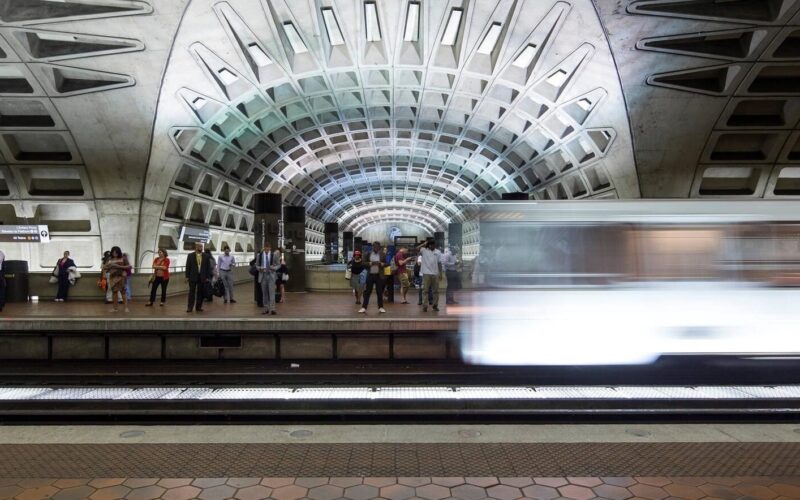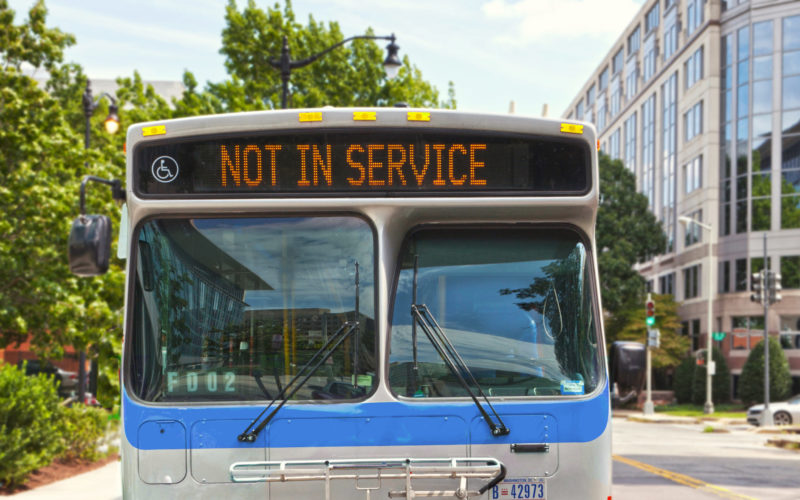

“THE BEAUTIFUL PEOPLE” BY TORBAKHOPPER IS LICENSED UNDER CC BY-ND 2.0
HB2, the law recently passed by the legislature of North Carolina and signed into law by Gov. Pat McCrory, endorses discrimination. The legislation is contrary not just to basic American values, but also to the principles of those who provide, improve, and advocate for public transportation.
The best way for transit professionals (and all Americans) to object to this legislation is through concrete actions that show the people and politicians of North Carolina that their state’s official affirmation of discrimination makes it an unacceptable place to do business. Time and again in our history—whether with women’s rights, LGBTQ rights, or civil rights for African Americans—refusing to hold industry conventions in such places has proven a powerful tool at our disposal.
Such an opportunity is upon us: the annual bus conference of the American Public Transportation Association (APTA), scheduled to take place in Charlotte from May 15 to May 18.
Shortly after passage of this legislation, TransitCenter canceled its plans to attend the conference, and we have urged APTA to reschedule it in another state. This week, we have heard of similar stances from colleagues at the New York Metropolitan Transportation Authority, the San Francisco Municipal Transportation Agency, King County Metro in Seattle, Sam Schwartz Engineering, and the International leadership at the Amalgamated Transit Union.
The essence of public transportation is mobility—not just the literal mobility of moving about a city, but the social and economic mobility that comes with the ability to access opportunities. The story of civil rights in America is often told through the lens of public transportation: Homer Plessy on a railroad car traveling from New Orleans to Covington, Rosa Parks on a bus in Birmingham, James Robertson walking 21 miles to work in Detroit. In light of this history, this generation of transit professionals must lead the vanguard of human rights.
We are cognizant that many residents of North Carolina are both outraged and embarrassed by the bigotry displayed by their elected officials. We also know that transit agencies and many cities across the state are dedicated to serving all citizens without discrimination. The forward-thinking Carolinians we have met through our advocacy work in Charlotte and Raleigh have impressed us and left us convinced that many in the Tar Heel State are looking to the future.
Nevertheless, North Carolina’s legislature and governor have made clear that they have no qualms about depriving people in their state of their civil rights. APTA must react in kind by moving its conference to a state where all people are welcome.
 On the Brink: Will WMATA’s Progress Be Erased by 2024?
On the Brink: Will WMATA’s Progress Be Erased by 2024?
The experience of being a WMATA rider has substantially improved over the last 18 months, thanks to changes the agency has made like adding off-peak service and simplifying fares. Things are about to get even better with the launch of all-door boarding later this fall, overnight bus service on some lines starting in December, and an ambitious plan to redesign the Metrobus network. But all of this could go away by July 1, 2024.
Read More Bus Operators are in Crisis. Here’s How Agencies Can Turn Things Around.
Bus Operators are in Crisis. Here’s How Agencies Can Turn Things Around.
TransitCenter’s new report, “Bus Operators in Crisis,” details the challenges American operators are facing, and offers solutions that transit agencies can take to solve issues locally. It also proposes steps that states and the federal government can take to support transit agencies.
Read More